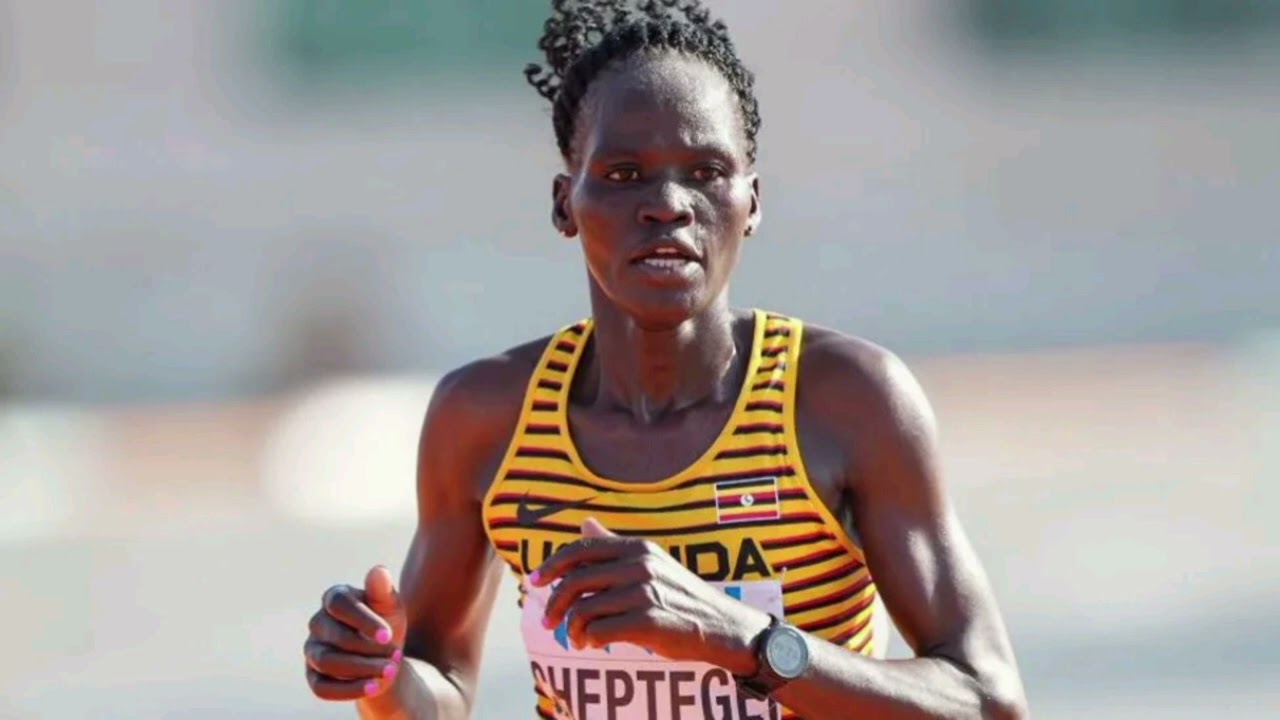In a tragic turn of events, Olympic athlete Rebecca Cheptegei has passed away, succumbing to injuries sustained after being set alight by her ex-boyfriend. The 33-year-old Ugandan marathon runner, who represented her country at the recent Paris Olympics, was attacked on Sunday, suffering severe burns after being doused in petrol. Despite the best efforts to save her, she succumbed to her injuries a few days later.
Cheptegei’s death has sent shockwaves across the global sports community, sparking a conversation about the rising incidents of violence against female athletes, particularly in Kenya, where this tragedy took place.
The Horrific Incident: What Happened to Rebecca Cheptegei?
Rebecca Cheptegei lived and trained in north-west Kenya, a region known for producing top-tier long-distance runners. On the day of the attack, she was returning home from church with her two daughters when her ex-boyfriend, with whom she had been entangled in a long-standing land dispute, launched the violent attack.
According to reports from local authorities, Cheptegei’s ex-boyfriend doused her in petrol and set her on fire, inflicting devastating injuries. Her burns were so severe that, despite being rushed to the hospital, she could not survive the ordeal.
The incident has sparked a police investigation, with local authorities vowing to bring the perpetrator to justice. However, this tragedy raises deeper concerns about the safety of women, especially female athletes, in the region.
Rebecca Cheptegei: A Champion On and Off the Track
Rebecca Cheptegei was much more than just an Olympian. Known for her resilience and strength, she represented Uganda at various international competitions, including the Paris Olympics, where she competed in the marathon. Her dedication to the sport and her achievements inspired many young athletes, particularly in East Africa.
As a single mother of two, Cheptegei managed to balance the demands of competitive running with her responsibilities as a parent. Her perseverance both in athletics and in life made her a role model for women and girls across the continent. Her untimely death is a devastating loss not only to her family but to the sporting world as a whole.
The Growing Violence Against Female Athletes in Kenya
Cheptegei’s tragic death is the latest in a disturbing trend of violence against female athletes in Kenya. Since October 2021, she is the third prominent female athlete to have been killed under violent circumstances. This growing pattern of gender-based violence is alarming, and her death has brought this issue to the forefront of public discourse.
Many are now calling for urgent action to be taken by local authorities, sports organizations, and governments to address the systemic issues that are contributing to this violence. While Kenya and other African nations are celebrated for producing world-class athletes, particularly in long-distance running, the protection of these athletes, especially women, has been lacking.
The Wrangling Over Land: A Dangerous Dispute
According to reports filed by a local administrator, Rebecca Cheptegei and her ex-boyfriend had been involved in a heated dispute over a piece of land. Land disputes are not uncommon in Kenya, particularly in rural areas, where ownership and inheritance issues often lead to violent confrontations.
In Cheptegei’s case, this ongoing dispute tragically escalated into an act of fatal violence. While details of the investigation are still emerging, it is clear that land-related conflicts, combined with domestic violence, are placing women in vulnerable and dangerous situations.
Calls for Justice and Increased Protection for Female Athletes
The death of Rebecca Cheptegei has prompted widespread calls for justice, with her friends, family, and fellow athletes urging authorities to ensure the perpetrator is held accountable. Additionally, this incident has reignited the conversation about the safety and protection of female athletes, not just in Kenya, but across the world.
Local and international advocacy groups are calling for more stringent laws to protect women from domestic violence and to ensure that female athletes, who often live and train in remote areas, are provided with the security they need. Sports organizations, including the International Olympic Committee (IOC) and various national athletic federations, are also being urged to take a more active role in ensuring the safety of athletes outside of competition.
A Legacy Cut Short
Rebecca Cheptegei’s death is a stark reminder of the challenges faced by women in sports, particularly in regions where gender-based violence is prevalent. While her athletic achievements were significant, her legacy now serves as a rallying point for efforts to protect female athletes from violence and abuse.
The sports world has been united in mourning her loss, with many athletes and officials paying tribute to her strength, determination, and courage. In her memory, it is hoped that more comprehensive measures will be implemented to protect other female athletes from falling victim to similar acts of violence.
Conclusion
The tragic death of Olympic athlete Rebecca Cheptegei, who was set on fire by her ex-boyfriend in a horrifying act of violence, has left the world shocked and heartbroken. Her passing not only highlights the dangers that women, particularly athletes, face in certain parts of the world but also serves as a wake-up call for governments, sports bodies, and advocacy groups to take stronger action against gender-based violence.
As the investigation continues, the global sports community must reflect on the challenges that female athletes like Cheptegei face and work towards creating a safer environment for all athletes. Her story is a painful reminder of how much more needs to be done to protect women from violence, both in sports and in society at large.




